EDCTP2 is achieving its objectives and is now a well-established part of the global health research ecosystem, a second interim independent evaluation has concluded.

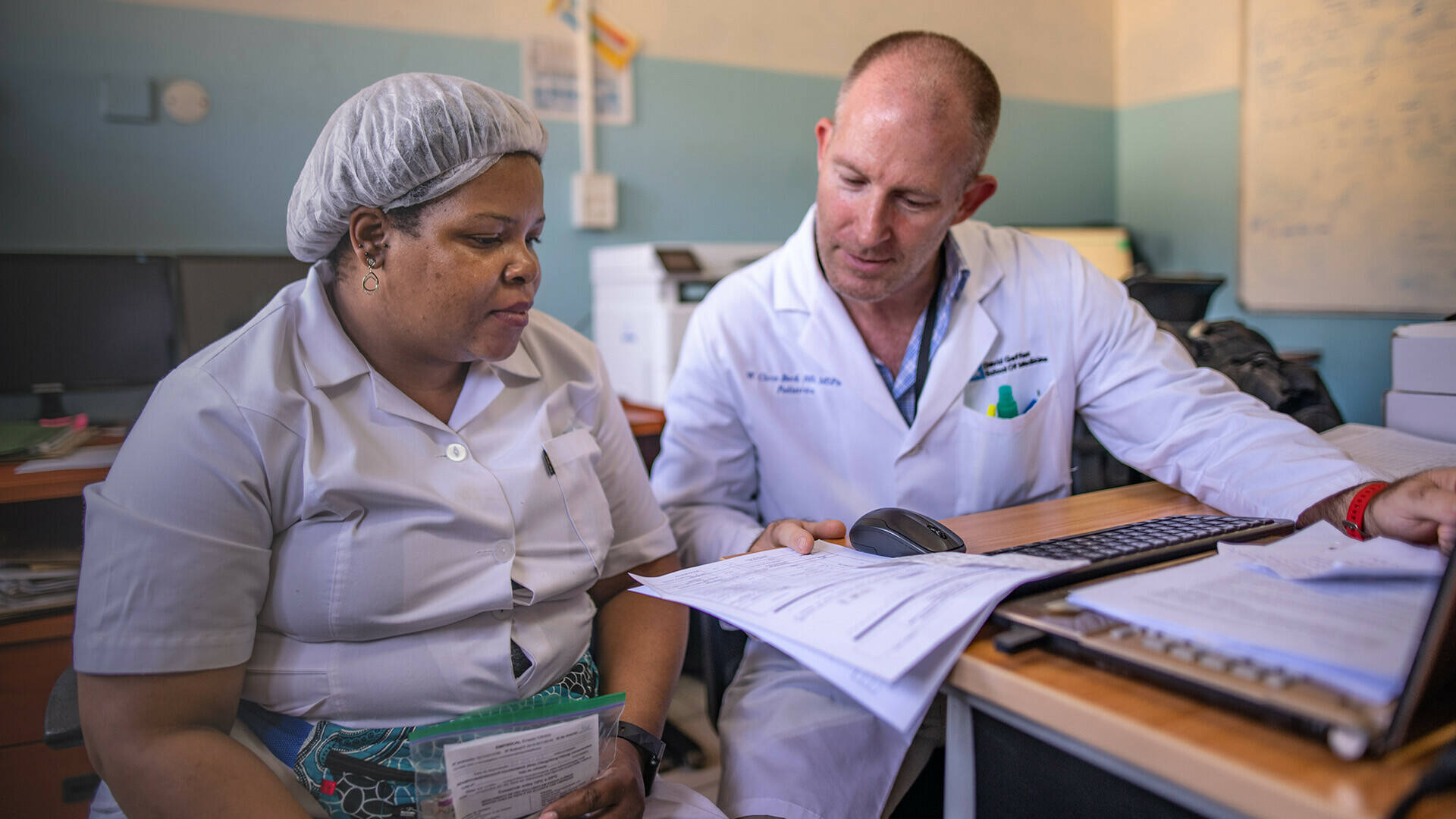
GH EDCTP3 JU also organised an information day for potential applicants in June 2022.
During 2022, the GH EDCTP3 JU also established its Stakeholders Group, which is regularly informed of the activities of the GH EDCTP3 JU and is invited to provide comments on the JU’s planned activities. The Group has a balanced representation of stakeholders from a geographic, thematic and gender perspective, including significant African expertise.
The successor to EDCTP2, the Global Health EDCTP3 Joint Undertaking (GH EDCTP3 JU), held its launch event in May 2022. The GH EDCTP3 JU is a partnership between the EU and the EDCTP Association. The meeting was a hybrid event hosted in-person by ANRS Emerging Infectious Diseases in Paris, France.
At the same time, the GH EDCTP3 JU published its Work Programme 2022 and launched its first calls for proposals. Initial themes included strengthening regulatory capacity for supporting conduct of clinical trials; promoting implementation of research results into policy and practice; creating a sustainable clinical trial network for infectious diseases in sub-Saharan Africa; implementing adaptive platform trials, and genomic epidemiology for surveillance and control of poverty-related and emerging/re-emerging infections in sub-Saharan Africa.
The Global Health EDCTP3 Joint Undertaking was formally launched in 2022 and issued its first calls for proposals.
EDCTP has published a report summarising the first 20 years of the EDCTP fellowship programme, its scientific achievements and its contribution to capacity-building in sub-Saharan Africa.
From its launch in 2003, EDCTP has had a strong focus on capacity-building. This has included a comprehensive fellowship programme, initially focused on Senior Fellowships but later expanding to all stages of a research career.
In 2022, EDCTP published a summary of the fellowship programme from 2003 to 2022. In this period, EDCTP invested €63 million through fellowship programmes for researchers from sub-Saharan Africa, providing support for more than 400 fellows, including nearly 100 Senior Fellows, working in 40 sub-Saharan African countries.
Fellowship schemes have helped to build scientific leadership within individual countries and the region as a whole, and enabled fellows to leverage substantial additional funding, including more than €20 million of grants in 2021 alone. Furthermore, EDCTP fellows have mentored and supervised more than 400 up-and-coming researchers, helping to strengthen the pipeline of scientific talent in the region. As those mentored by EDCTP fellows go on to supervise and support a new generation of researchers, fellows have a critical ‘multiplier’ function in developing research capacity.
The report also provides numerous examples where fellows have led or contributed to projects closing important gaps in knowledge relating to poverty-related infectious diseases affecting sub-Saharan Africa.
By helping to build intellectual capital in health research, EDCTP is ensuring that sub-Saharan Africa is in a position to fully address its current and future health challenges and be in control of its own destiny.
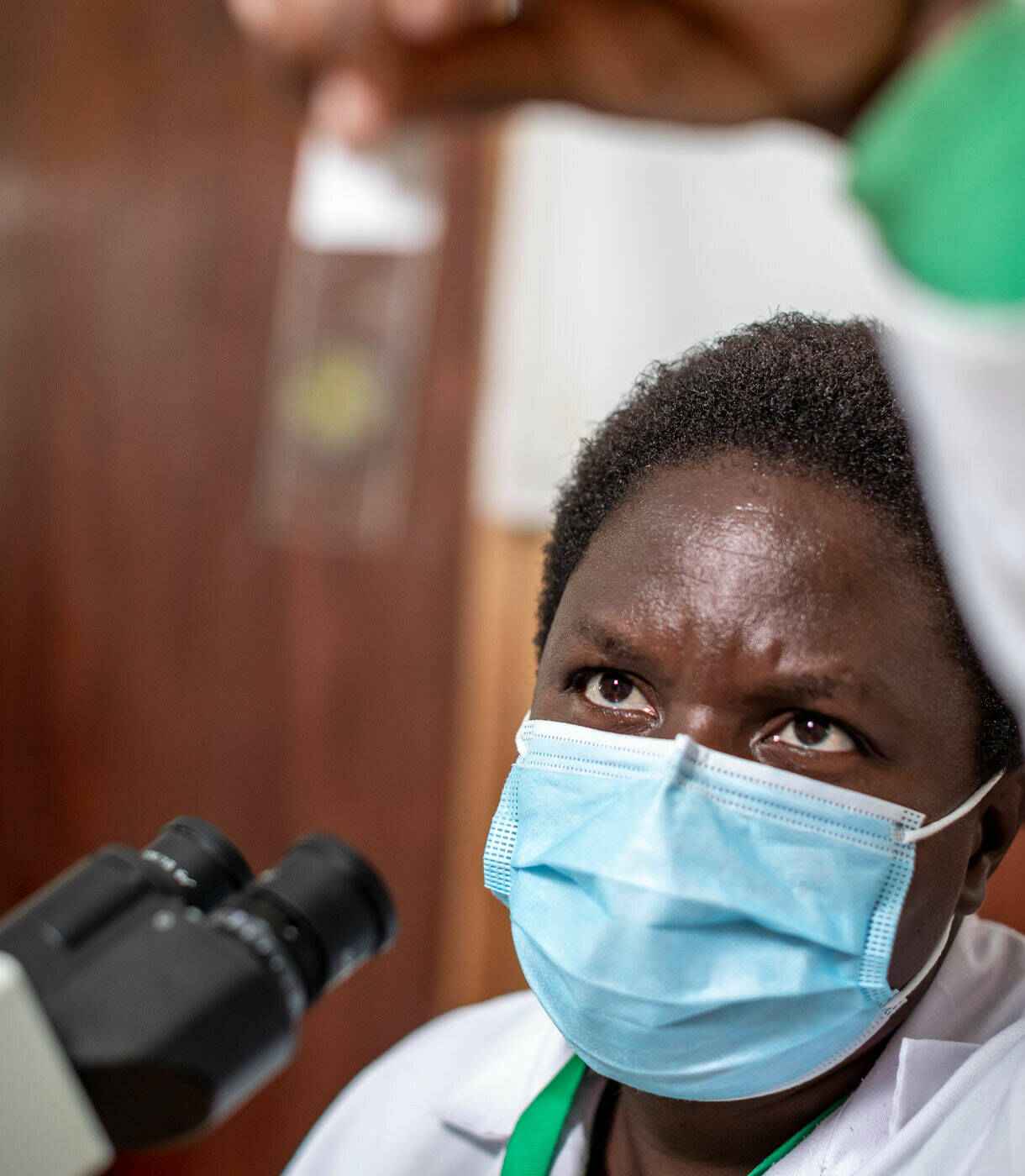
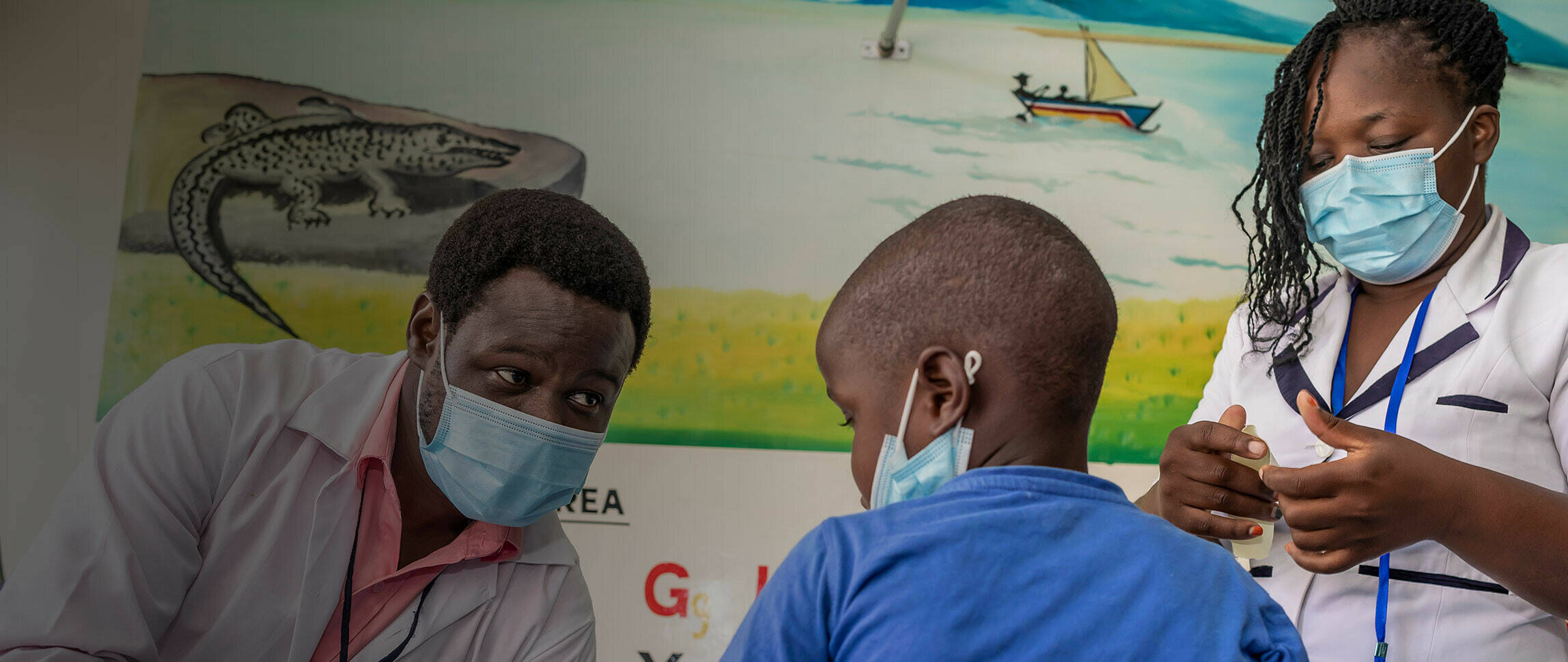
The independent review panel also suggested that EDCTP2 is efficiently run, with satisfactory ratings for key performance indicators. It noted that EDCTP2 had successfully addressed the issues raised in the first interim evaluation.
In terms of effectiveness, the evaluation concluded that “EDCTP2 has emerged as one of the most prominent funders of clinical studies in sub-Saharan Africa in recent years”. It described its contribution to specific disease areas as “considerable”, noting in particular the extent of its funding in TB and in malaria, where EDCTP2 has been recognised twice in WHO World Malaria Reports. The evaluation also praised EDCTP2’s extensive efforts to build partnerships with global actors and those in sub-Saharan Africa.
Finally, for added value, the evaluation concluded that EDCTP2 is having a significant impact, enabling the implementation of projects on a scale, scope and timeframe that would not be possible without its financial and other types of contributions. The programme demonstrates additionality by being able to leverage further funding from private and public sources and by facilitating the development of research networks in sub-Saharan Africa. Overall, it considered EDCTP2 to be an open and transparent partnership.
Please visit the EDCTP website to download the second interim evaluation.
scroll down
The evaluation concluded that EDCTP2 is now well-established and recognised globally. It remains highly relevant, in large part due to its sensitivity to stakeholder needs and their involvement in priority setting, including annual Strategic Research Agendas. It has also demonstrated its adaptability, rapidly responding to new outbreaks and pandemics affecting sub-Saharan Africa.
Moreover, it has recognised the need to combine evidence generation to advance new medical interventions with capacity-building to provide a more solid foundation for clinical research in sub-Saharan Africa and the implementation of new interventions.
In terms of coherence, the evaluation noted that EDCTP2 has established a clear niche, with a particular focus on late-stage trials and product-focused implementation research, as well as populations typically excluded from clinical trials, including infants, children, adolescents, pregnant women, and people living with coinfections and co-morbidities. The alignment between centrally managed EDCTP2 projects and participating states-initiated activities (PSIAs) promotes further coherence. Recently, adoption of a portfolio approach, in areas of particular strength such as malaria drug development and TB vaccine development, has yielded additional benefits in terms of coherence.
In 2022, an independent review panel published the results of a second interim evaluation of the EDCTP2 programme, covering the period 2017–2021. Overseen by the European Commission, the evaluation focused on five key aspects – relevance, coherence, efficiency, effectiveness and EU added value.
scroll down
EDCTP2 is achieving its objectives and is now a well-established part of the global health research ecosystem, a second interim independent evaluation has concluded.
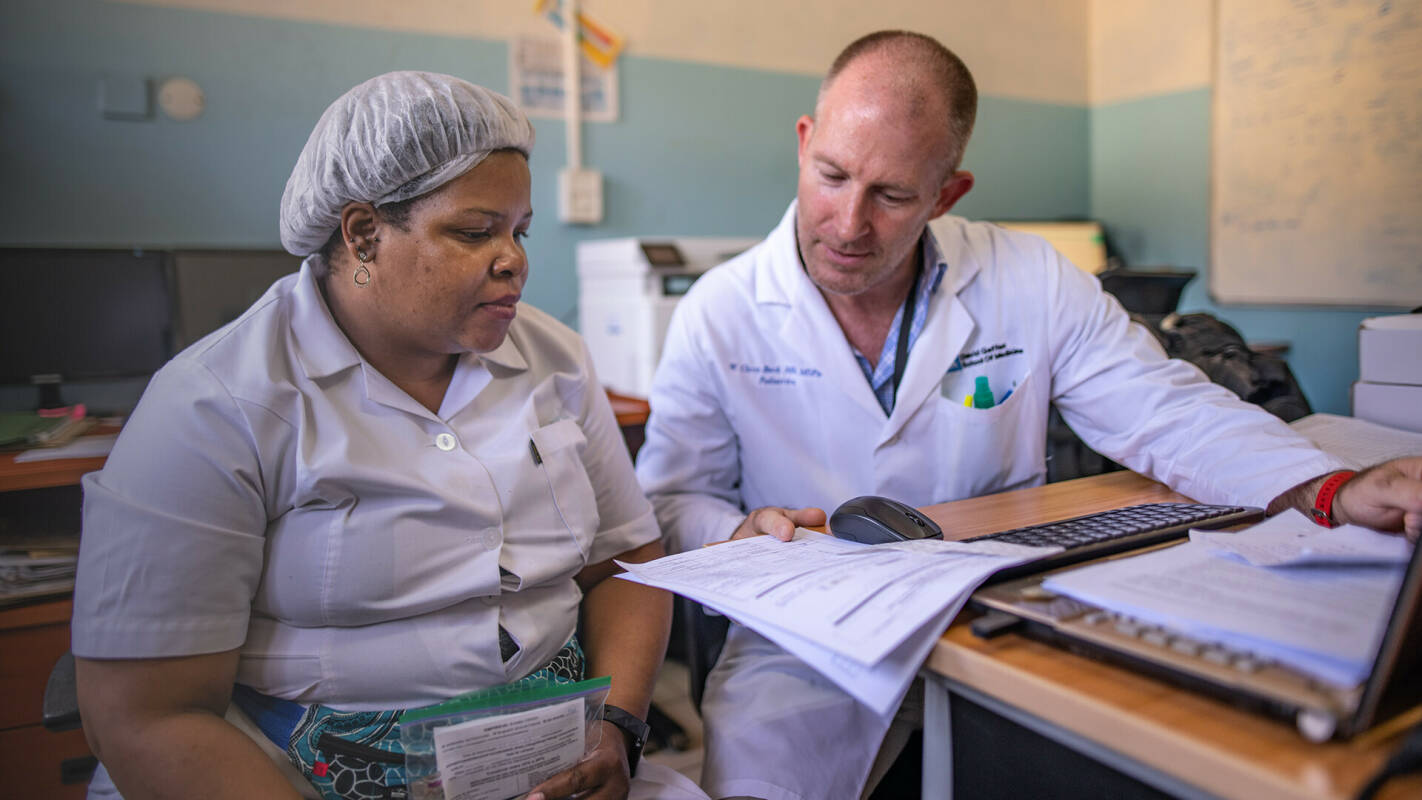
- The Dutch SME Delft Diagnostic Imaging, involved in the EDCTP-funded TREATS project, offers free-of-charge its Artificial Intelligence diagnostic software, CAD4COVID, to help triage COVID-19 cases in the TREATS-COVID project. This project takes advantage of the TREATS study to rapidly gain a better picture of COVID-19 transmission in an urban setting in Zambia.
- The Chinese company Nanjing BioPoint Diagnostics provides in-kind support through reduced pricing of Dried Plasma Spots for the COREP project that studies transmission in rural settings at two health and demographic surveillance sites in Kenya and South Africa.
- German companies Midge Medical and Tib MolBiol will contribute lab supplies and personal protective equipment (PPE) and real-time RT-PCR kits to the Suitcaselab project that is evaluating an innovative ‘laboratory-in-a-suitcase’ for rapid detection of SARS-CoV-2 infections
- The AfriDx project is adapting an innovative molecular testing platform, known as PATHPOD, that is accurate, easy to use at a point of care, and gives results within an hour. It is also developing novel ‘dipstick’ tests for detecting different types of SARS-CoV-2-specific antibodies. To promote sustainability, TATAA Biocenter is leading the project team’s efforts to establish manufacturing capacity for the tests in the region.
- The COVADIS project is evaluating both antigen and antibody tests, including a novel rapid point-of-care antigen test COVID-19 Ag Respi-Strip™ developed by Coris BioConcept. The project will also establish a platform that will enable antibody responses to be assessed using convenient dried finger-prick blood samples.
- The ITAILCOVID-19 project is assessing a range of antigen and antibody tests, including the rapid antigen diagnostic test COVID-19 Ag Respi-Strip™ developed by Coris BioConcept, and will build testing capacity in the Republic of Congo. An additional strand of the project will focus on health care workers, who are at significant risk of infection.
Additionally, Swedish SME Mabtech is developing antibody and fluorospot assays to be used in the ImmunoCov project, which is undertaking a detailed analysis of both antibody and T-cell mediated responses to SARS-Cov-2 infection, and validating a range of tests for possible further investigation in African populations.

The successor to EDCTP2, the Global Health EDCTP3 Joint Undertaking (GH EDCTP3 JU), held its launch event in May 2022. The GH EDCTP3 JU is a partnership between the EU and the EDCTP Association. The meeting was a hybrid event hosted in-person by ANRS Emerging Infectious Diseases in Paris, France.
At the same time, the GH EDCTP3 JU published its Work Programme 2022 and launched its first calls for proposals. Initial themes included strengthening regulatory capacity for supporting conduct of clinical trials; promoting implementation of research results into policy and practice; creating a sustainable clinical trial network for infectious diseases in sub-Saharan Africa; implementing adaptive platform trials, and genomic epidemiology for surveillance and control of poverty-related and emerging/re-emerging infections in sub-Saharan Africa.
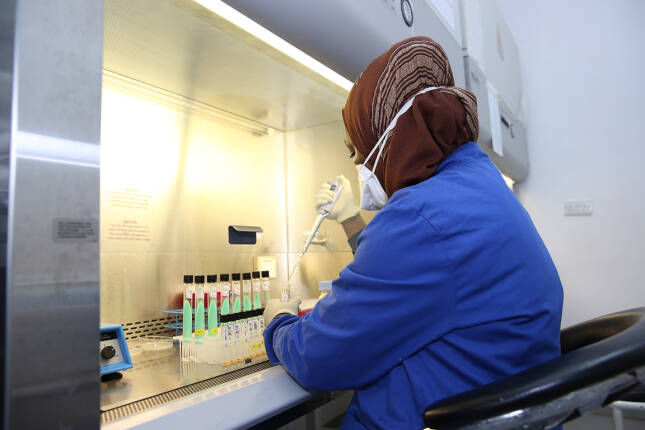
Read the article
on EDCTP’s sustained response to the COVID-19 pandemic
GH EDCTP3 JU also organised an information day for potential applicants in June 2022.
During 2022, the GH EDCTP3 JU also established its Stakeholders Group, which is regularly informed of the activities of the GH EDCTP3 JU and is invited to provide comments on the JU’s planned activities. The Group has a balanced representation of stakeholders from a geographic, thematic and gender perspective, including significant African expertise.
The Global Health EDCTP3 Joint Undertaking was formally launched in 2022 and issued its first calls for proposals.
EDCTP is proud to have established valuable strategic partnerships with industry partners through the EDCTP2 programme and they have proven to be essential partners in EDCTP-supported product–focused research, identifying research gaps and niches and helping to shape EDCTP’s investment strategy. EDCTP2’s successor programme, Global Health EDCTP3, will continue to broker productive and sustainable partnerships – promoting networking and building relationships with multiple private- and public-sector organisations. It will also consolidate EDCTP’s investment in late-stage product development, using more flexible and long-term approaches to establish strategic alliances with product developers, including both small- and medium-sized enterprises, large pharmaceutical companies, and product development partnerships. To this end, we look forward to increased interaction with and engagement of existing and new strategic partners in Global Health EDCTP3, with the aim to achieve synergies and even greater impact on product development in the global health field.
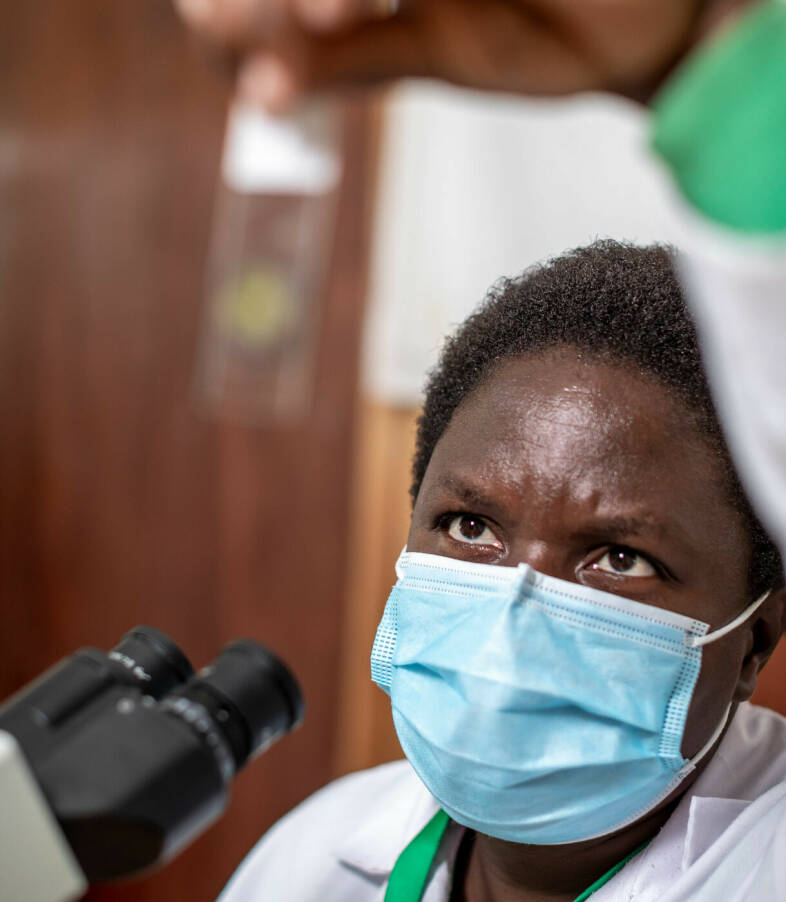
EDCTP has published a report summarising the first 20 years of the EDCTP fellowship programme, its scientific achievements and its contribution to capacity-building in sub-Saharan Africa.
From its launch in 2003, EDCTP has had a strong focus on capacity-building. This has included a comprehensive fellowship programme, initially focused on Senior Fellowships but later expanding to all stages of a research career.
In 2022, EDCTP published a summary of the fellowship programme from 2003 to 2022. In this period, EDCTP invested €63 million through fellowship programmes for researchers from sub-Saharan Africa, providing support for more than 400 fellows, including nearly 100 Senior Fellows, working in 40 sub-Saharan African countries.
Fellowship schemes have helped to build scientific leadership within individual countries and the region as a whole, and enabled fellows to leverage substantial additional funding, including more than €20 million of grants in 2021 alone. Furthermore, EDCTP fellows have mentored and supervised more than 400 up-and-coming researchers, helping to strengthen the pipeline of scientific talent in the region. As those mentored by EDCTP fellows go on to supervise and support a new generation of researchers, fellows have a critical ‘multiplier’ function in developing research capacity.
The report also provides numerous examples where fellows have led or contributed to projects closing important gaps in knowledge relating to poverty-related infectious diseases affecting sub-Saharan Africa.
By helping to build intellectual capital in health research, EDCTP is ensuring that sub-Saharan Africa is in a position to fully address its current and future health challenges and be in control of its own destiny.

Interview:
Dr Lutz Hegemann
We asked Dr Lutz Hegemann, President of Global Health & Sustainability at Novartis, how Novartis has contributed towards EDCTP-funded activities, and how we accelerate innovation while making sure that these innovations are accessible to the populations that need them the most.
We asked Dr Jutta Reinhard-Rupp, former EDCTP Scientific Advisory Committee member and Head of the Global Health Institute at Merck, how funders and industry can work together to define research priorities and ensure sustainability of the development process.
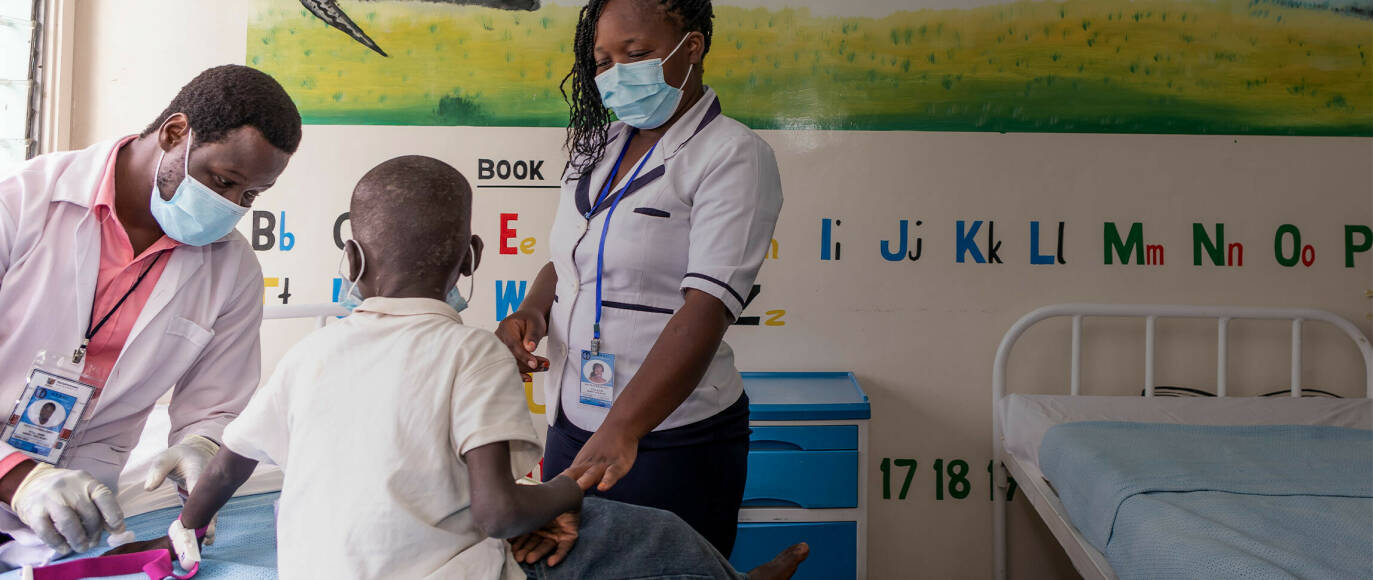
EDCTP’s collaboration with industry partners on joint initiatives has so far been largely focused on improving research capacity in sub-Saharan Africa, primarily through provision of fellowships. GlaxoSmithKline and Novartis have been major partners in this respect, supporting multiple calls for proposals on Senior Fellowships and Capacity Development Fellowships, one of which as a joint initiative with Fondation Botnar. These funding partnerships have shown great value in bridging specific research gaps, with the funding priorities of both partners enabling EDCTP to support the career paths of researchers working with vulnerable populations such as on maternal, child and adolescent health and in niche areas such as co-morbidities between poverty-related diseases (PRDs) and non-communicable diseases (NCDs).
Industry partners have also provided in-kind contributions to EDCTP2 through the EDCTP-WHO/TDR joint calls on Clinical Research and Product Development Fellowships which were regularly launched in 2014-2019. GlaxoSmithKline, Janssen Pharmaceutica NV, Novartis Institute for Biomedical Research (NIBR), Novartis Pharma AG, Merck KGaA and Pfizer have all participated as host institutions offering placements for successful fellows to obtain first-hand experience on different aspects of product development.
The independent review panel also suggested that EDCTP2 is efficiently run, with satisfactory ratings for key performance indicators. It noted that EDCTP2 had successfully addressed the issues raised in the first interim evaluation.
In terms of effectiveness, the evaluation concluded that “EDCTP2 has emerged as one of the most prominent funders of clinical studies in sub-Saharan Africa in recent years”. It described its contribution to specific disease areas as “considerable”, noting in particular the extent of its funding in TB and in malaria, where EDCTP2 has been recognised twice in WHO World Malaria Reports. The evaluation also praised EDCTP2’s extensive efforts to build partnerships with global actors and those in sub-Saharan Africa.
We asked Professor Marcel Tanner, president of the Swiss Academy of Sciences and EDCTP High Representative for Europe, to describe EDCTP’s strategy on industry involvement in global health product development and to provide his views on opportunities for increased engagement in the future.
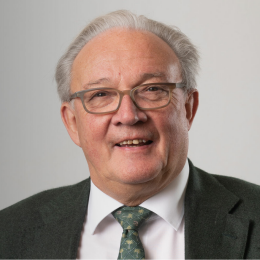
Interview:
Prof. Marcel Tanner
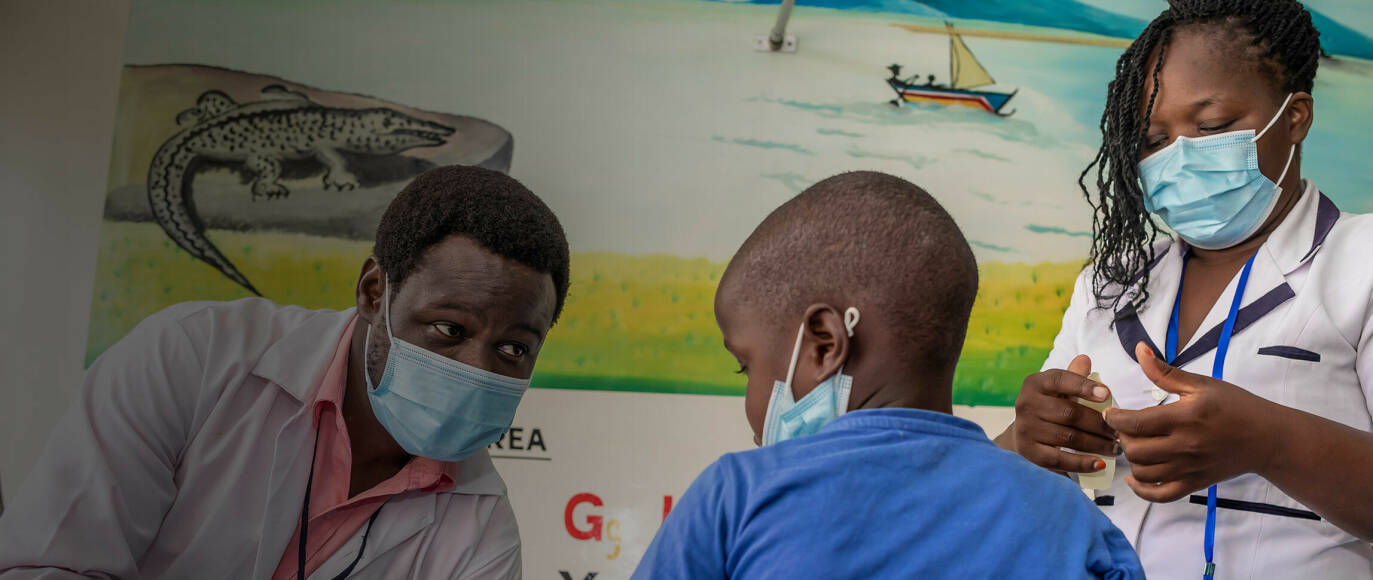
The evaluation concluded that EDCTP2 is now well-established and recognised globally. It remains highly relevant, in large part due to its sensitivity to stakeholder needs and their involvement in priority setting, including annual Strategic Research Agendas. It has also demonstrated its adaptability, rapidly responding to new outbreaks and pandemics affecting sub-Saharan Africa.
Moreover, it has recognised the need to combine evidence generation to advance new medical interventions with capacity-building to provide a more solid foundation for clinical research in sub-Saharan Africa and the implementation of new interventions.
In terms of coherence, the evaluation noted that EDCTP2 has established a clear niche, with a particular focus on late-stage trials and product-focused implementation research, as well as populations typically excluded from clinical trials, including infants, children, adolescents, pregnant women, and people living with coinfections and co-morbidities. The alignment between centrally managed EDCTP2 projects and participating states-initiated activities (PSIAs) promotes further coherence. Recently, adoption of a portfolio approach, in areas of particular strength such as malaria drug development and TB vaccine development, has yielded additional benefits in terms of coherence.
In 2022, an independent review panel published the results of a second interim evaluation of the EDCTP2 programme, covering the period 2017–2021. Overseen by the European Commission, the evaluation focused on five key aspects – relevance, coherence, efficiency, effectiveness and EU added value.

